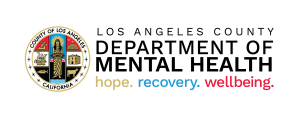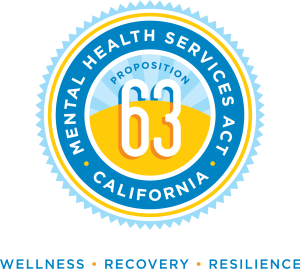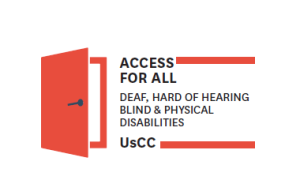
This groundbreaking conference was held over four-Fridays in April and May 2021. In live attendance were Black-identifying birth workers, providers and clinicians in the Los Angeles County area. The training recording was made available for a limited period of time and is currently closed.
OUR MISSION:
To engage Black clinicians and providers to increase the capacity and competency of the community.
OUR GOAL:
Is that Black families will have more opportunities to find specialized perinatal providers who look like them and with whom they can relate.
We presented foundational knowledge on perinatal mental health care through a culturally-informed lens. We wanted to assist the community in building concrete skills and tools to more adequately address the mental health needs of Black women and birthing people and aim to address this specifically within the Los Angeles County area. Check out the full conference brochure here.
Proceeds benefited future MMH-NOW programming for Black birth workers and/or Black birthing people. In-person registration and recordings for this conference are now closed. If you would like further information regarding online training opportunities, please click here or contact [email protected].
The recording included an opportunity for CE/PMH-C credit. Please note, no partial credit was available.
CONTINUING EDUCATION (CE) 14 credits approved:
Continuing education for the Perinatal Mental Health Conference for Black Birth Workers, Clinicians and Providers was sponsored by Wellnest, formerly Los Angeles Child Guidance Clinic. Wellnest is approved by the American Psychological Association (APA) to sponsor continuing education for psychologists. Wellnest maintains responsibility for this program and its content. This course meets criteria for 14 continuing education credits for LMFTs, LPCCs, LCSWs, LEPs, and psychologists through the Board of Behavioral Sciences (BBS) in the state of CA. If you hold a license not listed here or are licensed outside of the state of California, please check with your licensing board directly to confirm that these CE credits will be accepted. We are unable to assist in verifying if CE credits will be approved for your license type/state outside of California.
Requirements for receiving credit: 1) view recordings for all 4 days of the conference, 2) read MANDATORY supplemental materials, 3) pass post-test assessment for each day 3) complete the survey evaluation when prompted and apply to download your certificate. Requests to download certificates beyond 12/31/21 will result in a $20 processing fee and at least 2 weeks processing time. For urgent requests within 24 business hours of request, an additional $10 processing fee will apply.
PERINATAL MENTAL HEALTH CERTIFICATION (PMH-C):
This event was also approved by Postpartum Support International (PSI) to count toward PMH-C requirements as the basic foundational training in perinatal mental health. Please visit https://www.postpartum.net/
Sponsors
Agenda
Welcome
Wenonah Valentine, MBA
9:10 AM – 9:15 AM
Introductions and logistics
Anna King, LCSW, PMH-C
9:15 AM – 9:45 AM
Perinatal Mood and Anxiety Disorders (PMADs) from a community perspective
Erica Melbourne, PsyD
The presentation will review the unique challenges for underrepresented groups in accessing perinatal mental healthcare including prevalence rates as well as gaps and barriers to care.
Objectives:
1) Define perinatal mood disorders and review the difference in prevalence rates among underrepresented groups.
2) Discuss the disparities in screening/diagnosing perinatal mood disorders and how it may impact mortality rates for Black women and their newborn.
9:45 AM – 10:45 AM
Beyond the Blues: Perinatal Mood and Anxiety Disorders (PMADs)
Anna King, LCSW, PMH-C
Perinatal mood and anxiety disorders (PMADs) is an umbrella term that encompasses five major diagnoses. Following a brief review of major risk factors and high-risk populations, this session will cover differential diagnosis and common symptomatology in the perinatal period.
Objectives:
1) Describe the difference between baby blues and perinatal depression.
2) Assess the difference between postpartum obsessive compulsive disorder and postpartum psychosis.
3) Explain 1 biological, psychological, and social risk factor for perinatal mood disorders.
10:45 AM – 11:00 AM
Break
11:00 AM – 11:30 AM
Attachment, Neurobiology & Prevention in PMADs
Nakeisha Robinson, LMFT
The need to feel connected is part of our genetic makeup. But how do other factors like child development, early trauma, relationship formation, stress and well-being, and perinatal mental health play into all of this? Attachment and love are not the same thing. Bonding takes time and some parents do not always feel a great rush of love and bonding right away. Many parents have other feelings such as fear paired with love while still safely and consistently caring for their baby. If this happens, there is potential for attachment issues. As culturally responsive behavioral health professionals, we are in a unique position to contribute to the efforts to support attachment and promote parenting protective capacity.
Objectives:
1) Describe how and why mood disorders in the perinatal period may impair maternal attachment.
2) Identify parental ambivalence and formulate responses to associated shame and stigma.
11:45 AM – 12:30 PM
Storytelling, Reflection and Integration
Meridith A. Merchant, PhD
Dr. Meridith will share parts of her personal story and then lead participants in an experiential reflective activity. The goal will be to provide an opportunity for attendees to reflect on and increase awareness of their own experiences. Through this reflective process, participants may accelerate their personal healing and/or reconnect with their own strength and power to foster greater understanding, improved healing-centered engagement, and increased activism with and for those they serve.
Welcome, introductions and logistics
Meridith A. Merchant, PhD
9:10 AM – 10:00 AM
Tips for Screening and Assessment of PMADs
Anna King, LCSW, PMH-C
Learn the basics of how to screen and assess for perinatal mental health risk factors and signs of perinatal mood and anxiety disorders (PMADs). This discussion will focus on commonly utilized screening tools, recommended screening intervals, and cultural considerations while administering screening tools. Strategies for strengthening virtual confidentiality while screening will be addressed as well.
Objectives:
1) Describe 3 commonly used screening tools when assessing for perinatal mental health.
2) Assess for suicidal ideation and potential risk for self-harm.
10:00 AM – 10:45 AM
Affirming Support for Black Queer, Trans & Gender Diverse Birthing People
king yaa
Do you know that not all birthing people are women? More and more trans and non-binary people who have a uterus are using their bodies to get pregnant and build families. king yaa (pronouns: they, them, king!) is a queer reproductive justice advocate who will share some of the obstacles that sexual and gender diverse birthing people experience in reproductive spaces and offer useful and tangible ways that intentional birthworkers, providers and clinicians can create safer spaces that honour the intersections of Black, queer and gender diverse identities for optimal perinatal mental health.
Objectives:
1) Explore obstacles that many queer, trans and gender diverse people experience in reproductive spaces.
2) Identify what it means to be an affirming provider.
3) Examine 5 useful and tangible ways to support sexual & gender diverse birthing people.
10:45 AM – 11:00 AM
Break
11:00 AM – 11:45 AM
Gifts + Wounds of a Birthing Parent’s Womb
Katrina Long, LCSW, CYT
Mental health and trauma have an impact on the health and wellness of birthing individuals and the children they carry. This session will cover a brief description of trauma and its impact, transmission of mental and emotional distress and trauma during pregnancy, and provide tools for trauma-informed care from a culturally responsive lens.
1) Define trauma and describe its impact on birthing bodies, pregnancy and infants.
2) Explain how trauma and mental health issues are transmitted during pregnancy.
3) Describe ACEs and considerations for trauma-informed care.
11:45 AM – 12:30 PM
Radical Inclusivity: Honoring Our Kinfolx
Arisika Razak, CNM, MPH
This experiential workshop will include: guided meditation, movement meditation, silent practice, writing, lecture-demonstrations, music videos, small and large group sharing, and non-denominational ancestral praxis to help participants identify and acknowledge 1) the diversity of the Black/African Diasporic community; 2) ancestral healing technologies; 3) creative practices to encourage resilience; 4) valuation of the Black Body.
Welcome, introductions and logistics
Anna King, LCSW, PMH-C
9:15 AM – 10:00 AM
Understanding the Psychology of Pregnancy and Fertility
Marissa Long, PsyD
This keynote will address the psychology of pregnancy and fertility while highlighting the impact of socialized training to conceive, carry and birth with joy. Providers will learn to understand the ways in which their work saves lives. Disenfranchisement of the birth and loss experience for the Black community is evident, and Dr. Long will address how care providers act as pivotal agents in protecting Black bodies and Black families.
Objectives:
1) Discuss the realities and myths around conception, pregnancy, and birth within the Black community, including historical and generational experiences.
2) Identify at least 2 ways providers can work to educate, promote health, and prevent loss in the Black community.
3) Describe mental illness across multiple scenarios and settings related to pregnancy and fertility.
10:00 AM – 10:45 AM
NICU, Preterm birth, Infant Loss & Miscarriage: Considerations for the Black Birthing Community
Marissa Long, PsyD
This breakout session will dive more deeply into the experiences of Black women and families navigating at-risk pregnancies, births, and infants. Dr. Long will guide attendees through exploring ways that providers improve the outcomes of an already difficult experience, and discuss ways to create space for disenfranchised grief commonly experienced by those experiencing perinatal loss.
Objectives:
1) Identify 2 ways to engage with a Black family experiencing perinatal loss utilizing empathy and humility.
2) Identify signs of vicarious trauma and 1 self-care practice to combat its progression.
10:00 AM – 10:45 AM
Intimate Partner Violence (IPV) and PMADs
Nakeisha Robinson, LMFT
Intimate Partner Violence (IPV) is a pattern of assaultive and coercive behaviors that may include inflicted physical injury, psychological abuse, progressive social isolation, deprivation, sexual assault, stalking, intimidation, and threats. These behaviors are perpetrated by someone who is, was or wishes to be involved in an intimate or dating relationship with another person, and are aimed at establishing control by one partner over another. In addition to physical and/or emotional injuries sustained by victims, abuse is linked to increased risk for perinatal mood and anxiety disorders and pregnancy complications.
Objectives:
1) Define intimate partner violence (IPV) and identify special considerations in screening, assessment, and intervention strategies.
2) Discuss and appreciate the function of the multidisciplinary team and the role of each of its members.
10:45 AM – 11:00 AM
Break
11:00 AM – 11:45 AM
Partners, Fathers & PMADs
Sheehan Fisher, PhD
The workshop will focus on providing education on the rates of depression in fathers, how PMADs manifest differently in men, contributing factors to their risk of PMADs, and how their PMADs affect the family health and functioning. The workshop will also cover how to utilize fathers and partners to support maternal mental health.
Objectives:
1) Describe the rates of mental health disorders in fathers, how PMADS manifest differently in men, and how this impacts their functioning and well-being.
2) Identify the ways PMADs in fathers can affect family health overall.
11:45 AM – 12:30 PM
Storytelling, Reflection and Integration
Meridith A. Merchant, PhD
Dr. Meridith will continue to share her personal story and again lead participants in an experiential reflective activity. The goal will be to provide an opportunity for attendees to reflect on and increase awareness of their own experiences. Through this reflective process, participants may accelerate their personal healing and/or reconnect with their own strength and power to foster greater understanding, improved healing-centered engagement, and increased activism with and for those they serve.
Welcome, introductions and logistics
Meridith A. Merchant, PhD
9:10 AM – 9:45 AM
Where the Rubber Meets the Road: PMADs Treatment and Interventions
Janelle Watson, LMFT, PMH-C
During this presentation, engaging clients in the perinatal period utilizing evidenced-based interventions in different modalities will be discussed. Effective safety planning that incorporates increasing support systems and identifying local resources will also be highlighted. Safety planning is not typically engaged until a safety risk presents itself, which is a common mistake made by many providers. By creating a plan in advance, it allows the client to collaborate while at their baseline and create a more comprehensive plan.
Objectives:
1) Identify at least 2 ways to support clients in the perinatal period using evidenced-based interventions.
2) Create a more comprehensive safety plan in collaboration with clients.
9:45 AM – 10:45 AM
“I heard I can’t take medication when I’m pregnant”: What medical providers need to know about psychotropic medication during pregnancy
Sinmi M. Bamgbose, MD
Many women will experience mental illness during pregnancy, most commonly presenting as depression and anxiety. These conditions are likely to worsen during the perinatal and postpartum treatment, especially if untreated, and are also correlated with adverse outcomes for the birthing parent and child. This presentation will address the common concerns and misconceptions regarding managing psychiatric disorders during pregnancy. In addition, we will discuss ways to involve the patient, family members, and all clinical providers in the informed consent process when it comes to choosing whether to use medication during this period.
Objectives:
1) Describe common symptoms of perinatal mood and anxiety disorder (PMADs).
2) Identify existing data regarding psychotropic medications in pregnancy and postpartum and describe current best practices.
3) Apply at least 1 effective technique for discussing treatment of PMADs with patients, family members, and clinical providers.
10:45 AM – 11:00 AM
Break
11:00 AM – 11:45 AM
How To Love A Black Body: Reimagining Wellness For Black Folx
Thea Monyeé, LMFT
This conversation will explore the difference between providing traditional westernized services to Black bodies and actively reimagining a love-centered approach to relationships between practitioners and the Black bodies they serve.
Objectives:
1) Utilize new language relevant to a love-centered approach to working with healing and Black bodies.
2) Identify opportunities to build love-centered client-practitioner relationships and develop treatment plans.
11:45 AM – 12:30 PM
Embodying Black Joy: “The Body Is Not An Apology”
Arisika Razak, CNM, MPH
This experiential workshop will include: gentle movement, guided meditation, silent practice, writing, music videos, and small and large group sharing to enable participants to 1) connect with a variety of practices which evoke authentic joy 2) celebrate the Black body 3) identify non-denominational spiritual practices to support Black birthing families and communities.
Speakers























